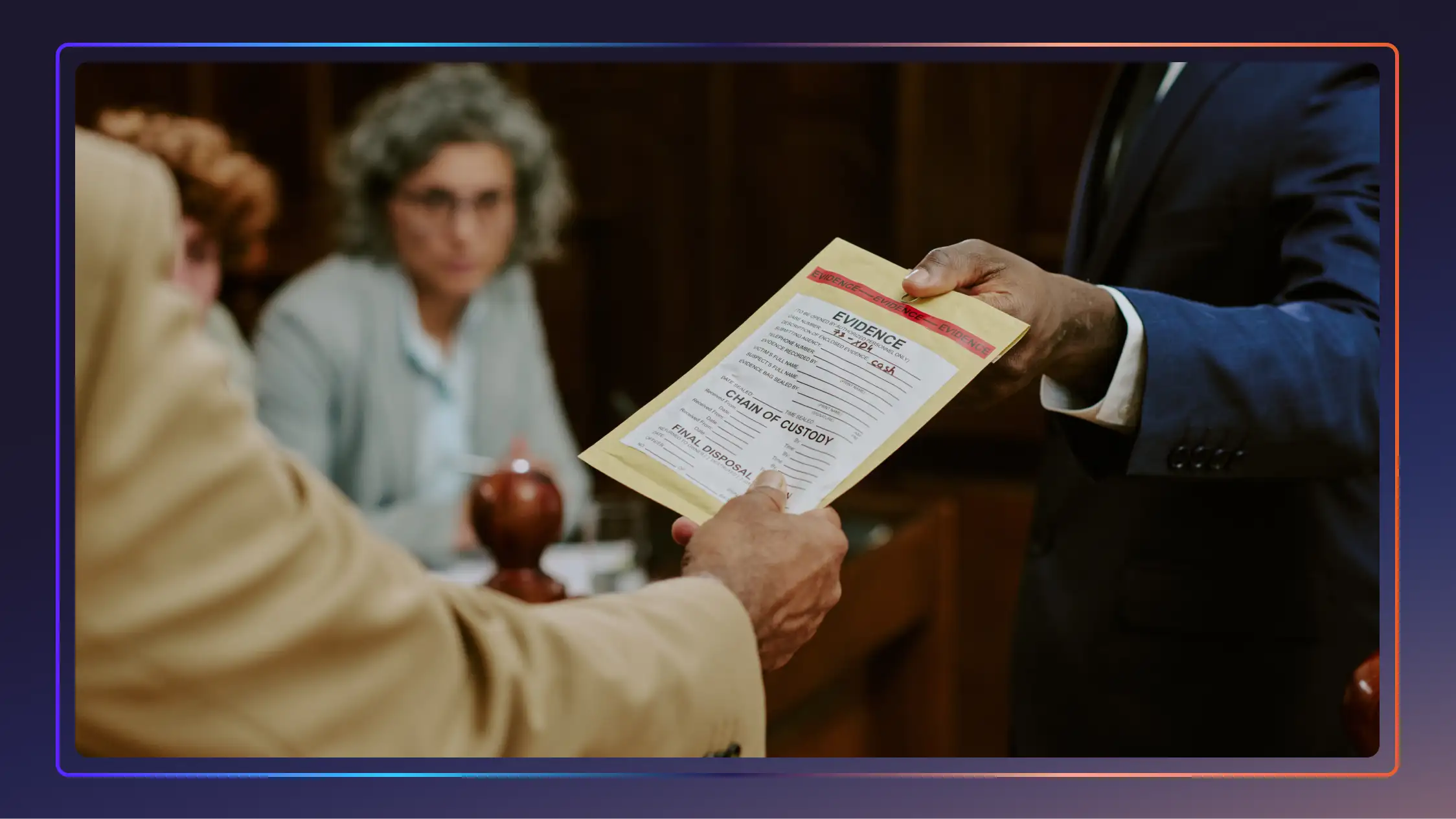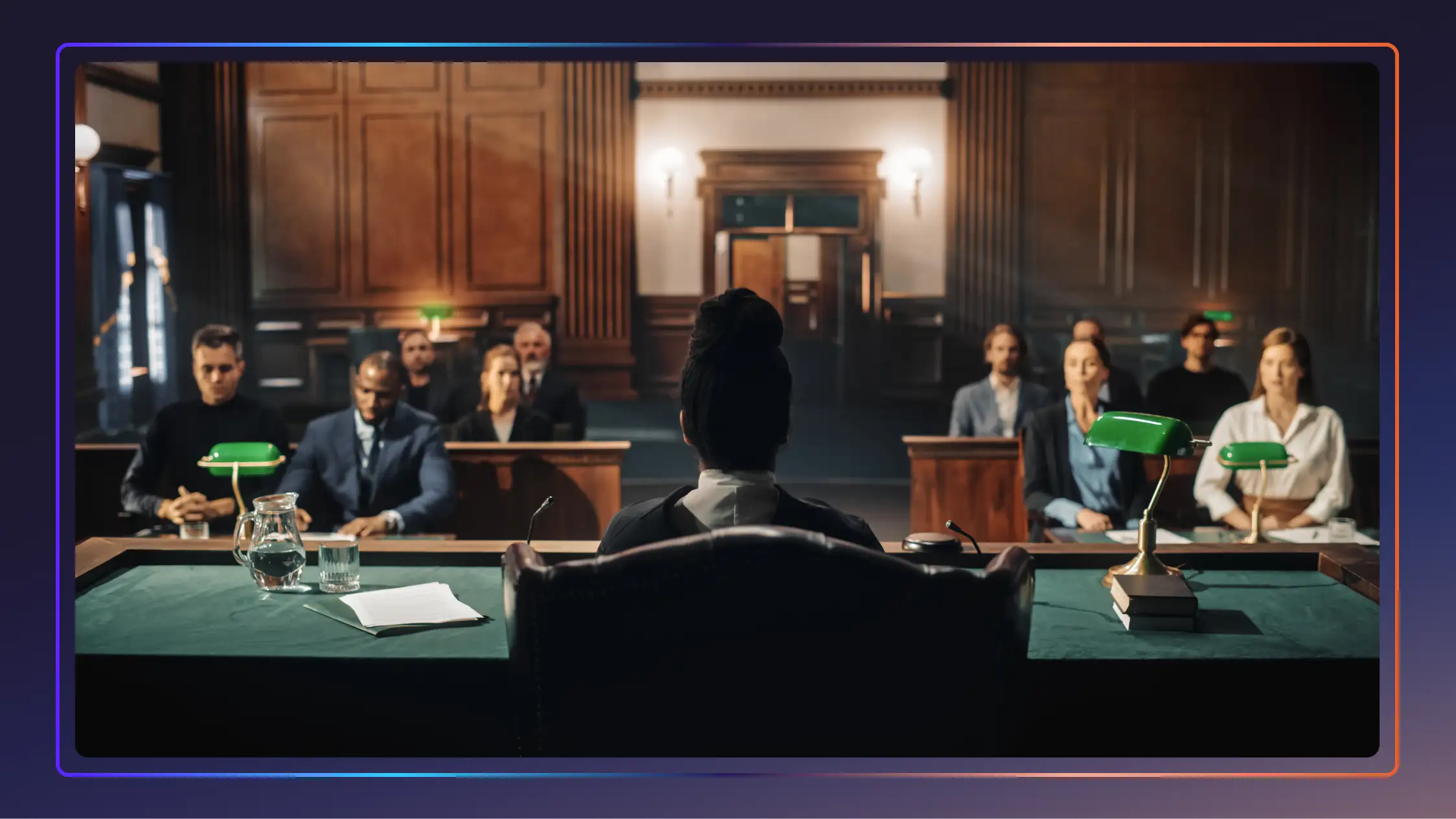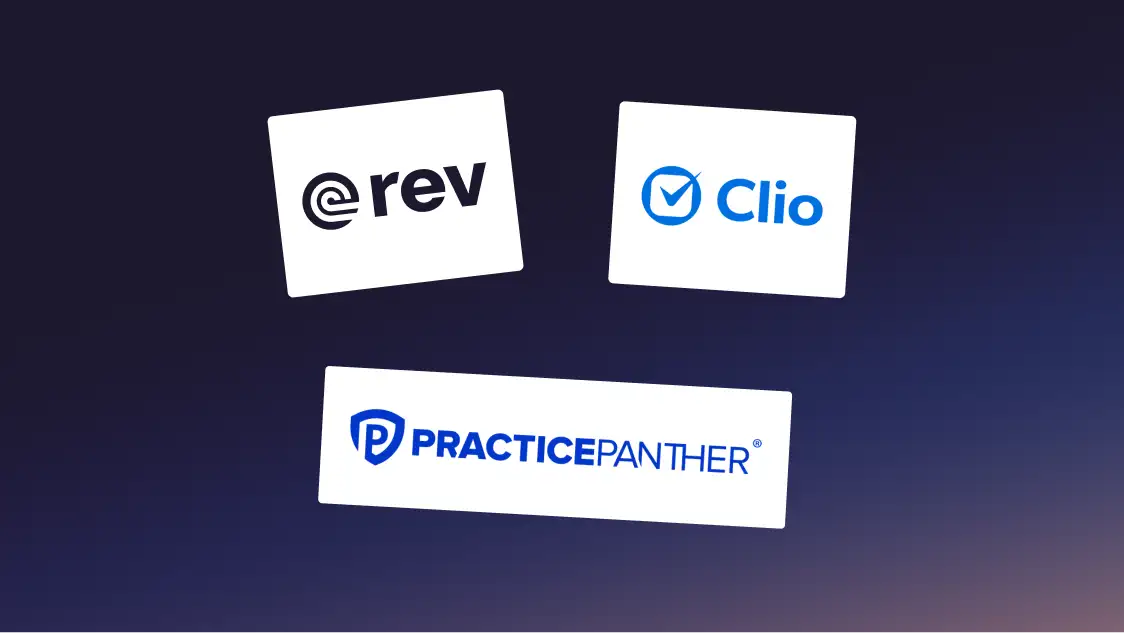How To Become a Court Reporter — The Complete Guide
Interested in a court reporting career? Learn how to become a certified court reporter, including training and certification steps.

A career in court reporting can be challenging yet rewarding. Court reporters create verbatim transcripts of trials, depositions, and other legal proceedings. Their work preserves vital records for a fair and just legal process. Success in the field requires extreme attention to detail, a passion for accurate legal records, and specialized typing and listening skills.
"Like much of the legal field, court reporting is sometimes portrayed in the mass media in a very traditional way, but people often don’t realize how much technology is transforming the profession, or the influx of new reporters and transcribers who are bringing innovation and new thinking to the table," explains Matt Riley, Executive Director at AAERT.
"This is a profession that is inclusive and forward-looking, and we want to make sure everyone has a place among us, so if you’re curious about this field, I strongly encourage you to take a closer look."
Thanks to modern technology, many court reporters now use digital tools to record and transcribe proceedings. This has opened up more opportunities for flexible work or even remote court hearings and depositions.
Sound like the right career path for you? Here’s everything you need to know about how to become a court reporter.
1. Consider Your Skillset
Court reporting can be an ideal career choice for anyone who appreciates the finer details of law and enjoys highly precise work. If you’re already a fast typer, you’re on the right track — but keep in mind that most court reporters need to type up to 200 words per minute (though keep in mind that traditional typing and court reporting take down methods vary)!
That said, digital court reporting now allows more aspiring court reporters to get into the field without rapid-fire typing skills. There’s also a wider variety of work available, such as live-captioning for deaf and hard-of-hearing individuals. You can even specialize in specific types of cases, such as medical malpractice cases to fit your passion for medical terminology (more on that below). Consider your interests, preferred schedule, and ideal legal setting to point yourself toward the right career path.
2. Pick a Specialty
Trained court reporters can pursue a variety of specializations based on their interests and skill sets. Official court reporters use machine shorthand to transcribe trials, hearings, and depositions, but that traditional route is only one of many nowadays.
Digital court reporters, meanwhile, capture proceedings with audio and video equipment. They oversee the recording process, taking notes on important moments and actions in the room, tracking speaker changes, monitoring their equipment, and creating a transcript later.
“The demand for court reporting is just astronomical, “ said Susan LaPooh, president of the American Association of Electronic Reporters and Transcribers (AAERT). “So we need all kinds of court reporters. We need stenographers, voice writers, digital court reporters. The demand is evolving because people are starting to hear more about digital court reporting.” Learn more from LaPooh in our Future of Digital Court Reporting webinar.
While you can always broaden your expertise, it’s best to choose an initial specialty when you begin your training. Your specialty may determine the important skills and educational path for launching your career.
3. Choose a School or Training Course
Whichever specialty you choose, proper training lays the essential groundwork for your court reporting career. The legal field is laden with complex terms and processes, and the skills you’ll need to acquire vary greatly depending on your role.
So how long does it take to become a court reporter? Depending on your path and state, becoming a certified court reporter can take anywhere from a few months to four years. Digital court reporters have the fastest track to starting their career, while traditional court reporters will typically spend several years in school plus on-the-job training. Court reporter certification also takes longer in states like California or Texas, which have stricter licensing requirements and state-specific exams.
The AAERT offers a list of approved schools and programs:
- BlueLedge online courses for digital court reporting and transcription
- Clark State College certificate programs for Professional Digital Reporters and Professional Digital Editors
- Fox Valley Technical College offers technical diplomas for Digital Court Reporters, Digital Audio Reporters, and Court Reporting
- Cuyahoga Community College online courses for steno writing, voice writing, digital reporting, and transcription
- Generations College two-year court reporting degree program
- The Court Reporting Academy online courses for certification in digital court reporting, stenographic court reporting, and traditional or digital scoping
- Stark State College associate degree in judicial court reporting
We offer a wealth of resources for court reporters and transcribers at all levels looking to learn more about the profession," says Riley. "For aspiring reporters and students, we screen a list of AAERT-approved schools as well as our Best Practices Guide and other resources to help learn and study the industry knowledge that’s on our certification exams."
Additionally, some of the best online court reporting schools include Des Moines Area Community College, The Community College of Alleghany County, and Generations College.
Can I Become a Court Reporter Without a Degree?
Most court-reporting jobs do not require a formal degree, though states like Texas and California require you to have a high school diploma or GED. Online programs, apprenticeships, and certification or license programs all offer legitimate pathways into the profession.
4. Meet National and State Requirements
The specifics of your court reporter training will depend on the state where you plan to practice. Each state has its own licensing and testing requirements. An up-to-date, comprehensive list of these is difficult to find, so check with courts and legal organizations in your area to find out what’s required.
For instance, a license is mandatory in Alabama, along with a Certified Court Reporter (CCR) designation, while Colorado only requires a Registered Professional Reporter (RPR) designation for official (non-freelance) reporters. Some states only require court reporters to have a notary public commission.
Besides your initial licensing and certification, consider resources for ongoing education and certification. The AAERT provides widely recognized certification programs for court reporters continuing their careers.
5. Get Acquainted With Legal Tech
Technology is shaking up the landscape for court reporting careers. Already, speech recognition software has made real-time digital court reporting easier — a seismic shift that’s reducing reliance on expensive, dated machinery and lowering the barrier to entry for the profession.
AI-powered speech-to-text software like Rev, for instance, can play a powerful supporting role as the industry changes. Our legal solutions can provide everything from real-time deposition insights to ready-to-certify legal transcripts. With Rev’s recent acquisition of SmartDepo, you can even get deposition summaries within minutes, complete with 100% accurate page-line citations.
Even when you’re not relying on advanced legal tools, technology will play an increasingly integral role in day-to-day work for court reporters. Across the industry, AI, cloud integrations, workflow automation, and other evolving technologies are quickly becoming core components of court reporting work. Familiarizing yourself with the latest tools is a critical step in preparing for your career.
6. Begin Your Job Hunt
Once you’re certified, you can start exploring opportunities to begin your career as a court reporter.
Court reporting agencies — specialized firms that hire reporters for freelance or full-time positions — are often the best place to start, but you can also find work directly in court systems and other government agencies. Many court reporters work in freelance roles, though it’s often better to get experience before trying to launch out on your own.
Check online job boards, especially industry-specific ones provided by organizations like the AAERT, state organizations, and larger court reporting agencies. Networking through professional organizations often leads to job opportunities down the road. Niche job boards like CourtReporterJobs.com or LegalJobs.com are also helpful resources.
7. Always Remain a Student
Like any other profession, a career in court reporting is not static. Law is always evolving, and new technology will continue to reshape the industry. Ongoing education is vital for staying fresh and informed in this field.
“If I wasn't willing to adapt and move into the newer things that were coming, my career would've been over in 11 years,” says LaPooh. “So upskilling ourselves, constantly learning, constantly adopting new technologies and new ways of thinking, I think is important.”
Many states require continuing education credits to maintain your license, and you’ll need ongoing instruction to renew various certifications. National and regional court reporting organizations offer continuing education programs, conferences, and workshops, and the AAERT hosts an annual conference with more than 15 hours of educational sessions. These are just a few of the many opportunities to keep learning and developing your court-reporting skills.
As you grow in your career, there are countless potential pathways to pursue. Along the traditional route, for instance, you could work your way toward higher wages as a federal court reporter in U.S. District Courts. For alternative opportunities, you could consider leveraging your court reporting skills as a CART Provider or specializing in legal technology such as speech-to-text AI or court automation tools.
How Much Do Court Reporters Make?
The median annual wage for court reporters is $63,940, according to the U.S. Bureau of Labor Statistics (BLS). That’s 33% higher than the median pay for all occupations, making court reporting a potentially lucrative career path.
Be sure to consider whether the higher-than-average pay compensates for some of the potential stresses of the job — tight deadlines, intense pressure to produce accurate work, and the potential for eye strain and other injuries from extensive typing.
Salaries vary based on experience, location, and specific placement within the industry. The top 10% of court reporters make more than $126,00 per year.
How Much Does It Cost to Become a Court Reporter?
Becoming a certified court reporter typically costs between $3,000 and $60,000, depending on your specialty and court reporter program.
However, becoming a certified digital court reporter (CER or CDR) is typically more affordable than traditional reporting. Online certification courses can cost as little as $500 to $600, making it a cost-effective entry into the field. Certification and state licensing, if required, may cost an additional $500 to $1,000.
In some cases — especially for freelance work — you’ll also need to purchase equipment. Professional digital court reporting equipment, such as a high-quality laptop, digital recording software, and external microphone, can be obtained for under $2,000.
Some employers, such as courts or court reporting agencies, may also provide the necessary equipment for their staff, further reducing upfront costs. This lower financial barrier makes digital reporting an accessible option for those looking to enter the court reporting industry quickly and affordably.
Give Your Court Reporting Career a Boost
The field of court reporting offers more pathways and opportunities than ever — largely thanks to new recording and transcription technology. You can even take courses and take a certification exam online.
Once you launch your career, you can record remote depositions and transcribe them with the help of AI. If you love the details of law and ensuring accurate records are kept for a fair and just legal system, a career in court reporting might be a perfect fit.
Ready to explore exciting new possibilities in digital court reporting? Learn how you can jump-start your court reporting career with Rev.














.webp)

